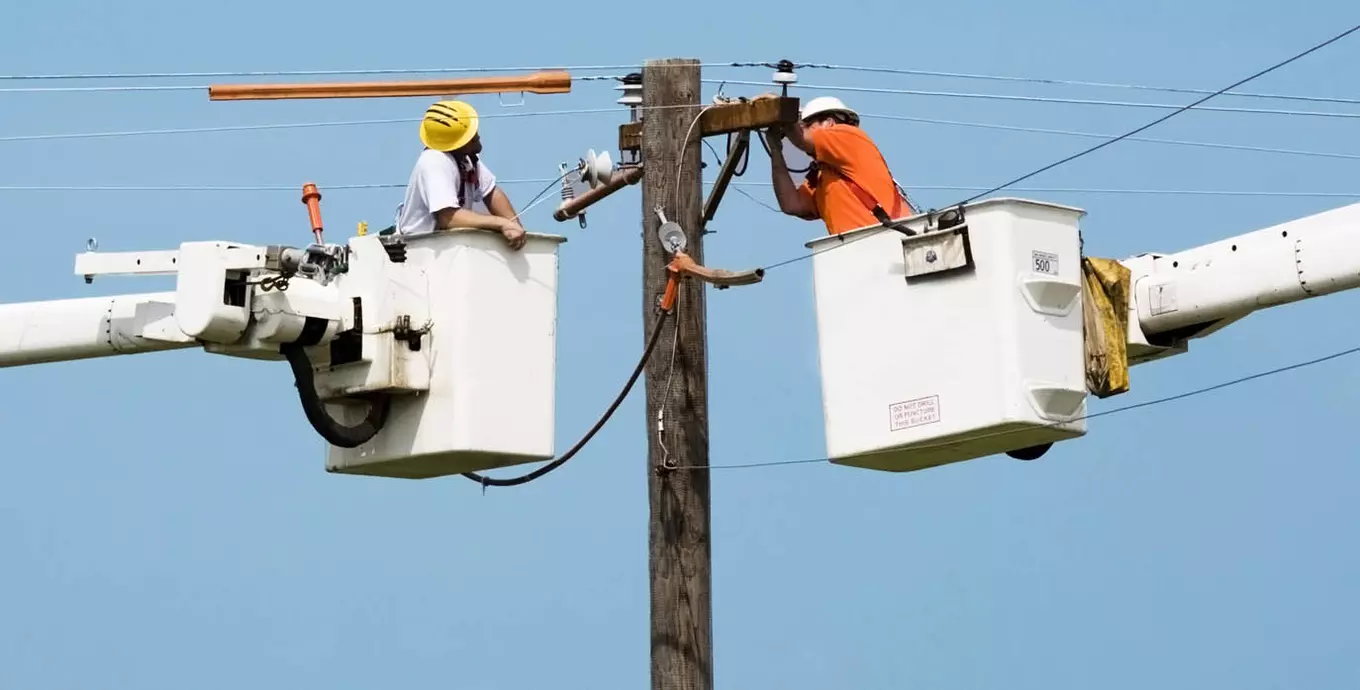
Utility Plan Review

Special Utility Permit
What Type of Construction Requires This Permit?
Special Utility Permits are required for installation of utilities in existing County roadways. This permit type is primarily secured by the utility companies or construction contractors to install these types of utilities:
- Water and Sewer mains and house connections
- Electric
- Gas
- Fiber and Cable
- Test pits, soil borings, and pavement cores within the County rights-of-way
The special utility permit is not the applicable permit type for other related utilities. Examples include:
- Storm Drain and Stormwater Management — Requires a DPIE Street Construction Permit or Site Development Fine Grading Permit
- Sump Pump Discharge — Requires a DPIE Special Drain Permit. Note: Sump pump discharges cannot connect to the curb and instead must be connected to an existing enclosed storm drain system.
- Well and Septic — Requires a DPIE Well Permit and Septic Permit. Note: Well and septic is permissible in the portion of the County that is outside the water and sewer envelopes. See PGAtlas for information on location of water and sewer envelopes. If the property is located inside the water and sewer envelope, these properties typically require public water and sewer extensions.
- Water, Sewer, Gas, Electric, and Telecommunication Construction Outside the Public Road Right-of-Way (R/W) — Requires a County grading permit in most cases. Contact DPIE Site Road Plan Review Division for further information.
- Small Wireless Device in the Public R/W — Requires a DPIE Cell Tower Right-of-Way Permit.
- Electric Charging Stations — Requires a DPIE EV Permit
- Tanks — Requires a DPIE Building Permit
- Traffic Signals — Requires a DPIE Street Construction Permit
Codes, Standards and Guidelines, Training Presentations
Utility Construction in the County Road Right-of-Way is governed by the Utility Policy and the County Road Code. Refer to the following:
- DPW&T "Policy and Specification for Utility Installation and Maintenance," Specifications and Standards for Roadways and Bridges.
- Prince Georges County Code, Subtitle 23 – 120, 123, and 144.
The special utility permit process requirements are covered by the following training presentation:
Are These Permits Required When the Road is Not a Prince George's County Road Right-of-Way?
All roads in Prince George’s County are not County roads and not public roads. If an existing road is public but managed by the Municipality or the Maryland State Highway Administration (MSHA), then apply for a permit through the Municipality or the MSHA. If the road is private, apply for a grading permit instead. The location of County roads is defined on the County’s Pavement Assessment Management map. For more information, visit the Pavement Assessment Management System (PAMS) page.
Forms and Checklists
The DPIE website includes many helpful forms and checklists. Go to:
- Utility Forms
- Utility Checklists — Special Utility Permit Design Review Checklist
- Temporary Traffic Control Checklists — Traffic Control Design Review Checklist
Fees and Bonds
- Application fee: $100
- Administrative fee: $200
- Permit fee $2.00 per linear foot of installation under roadway pavement
- Permit fee $0.50 per linear foot of installation outside of the roadway
- Permit fee $0.20 per linear foot of aerial installation
- Impact fee $10.00 per linear foot of installation in a moratorium roadway
- 5% Technology fee is added to all fees
- Performance bonds are required and calculated based on restoration of the right-of-way costs.
- Labor and Materialman's bond will be required for any cost greater than $25,000.
Inspection Requirements
- Third Party Inspectors are required for all Special Utility Permits. The permit applicant must hire and declare the third-party inspector prior to permit issuance. Review the "Third-Party Utility and Maintenance Inspections" Bulletin 2020-02 for more information.
Permit Application
Apply for a special utility permit.
Maintenance Utility Permit
A Maintenance Utility Permit is required perpetually for any company occupying the County rights-of-way. This permit must be renewed on an annual basis.
